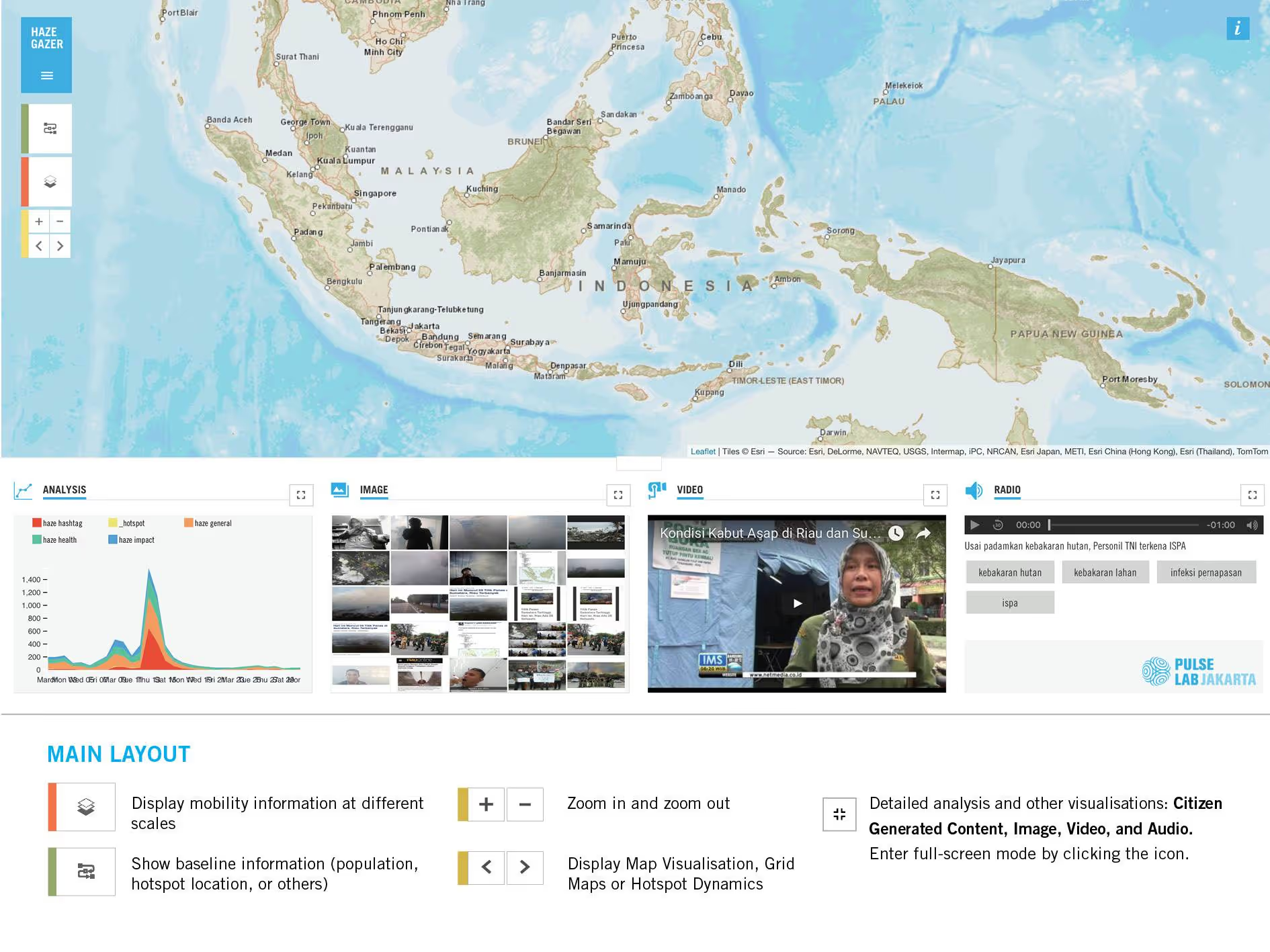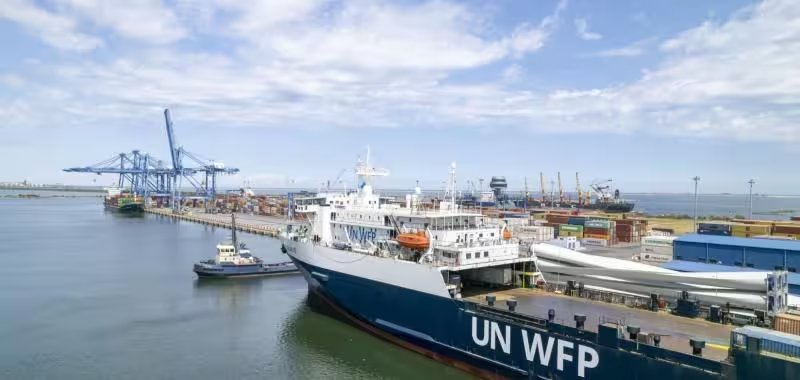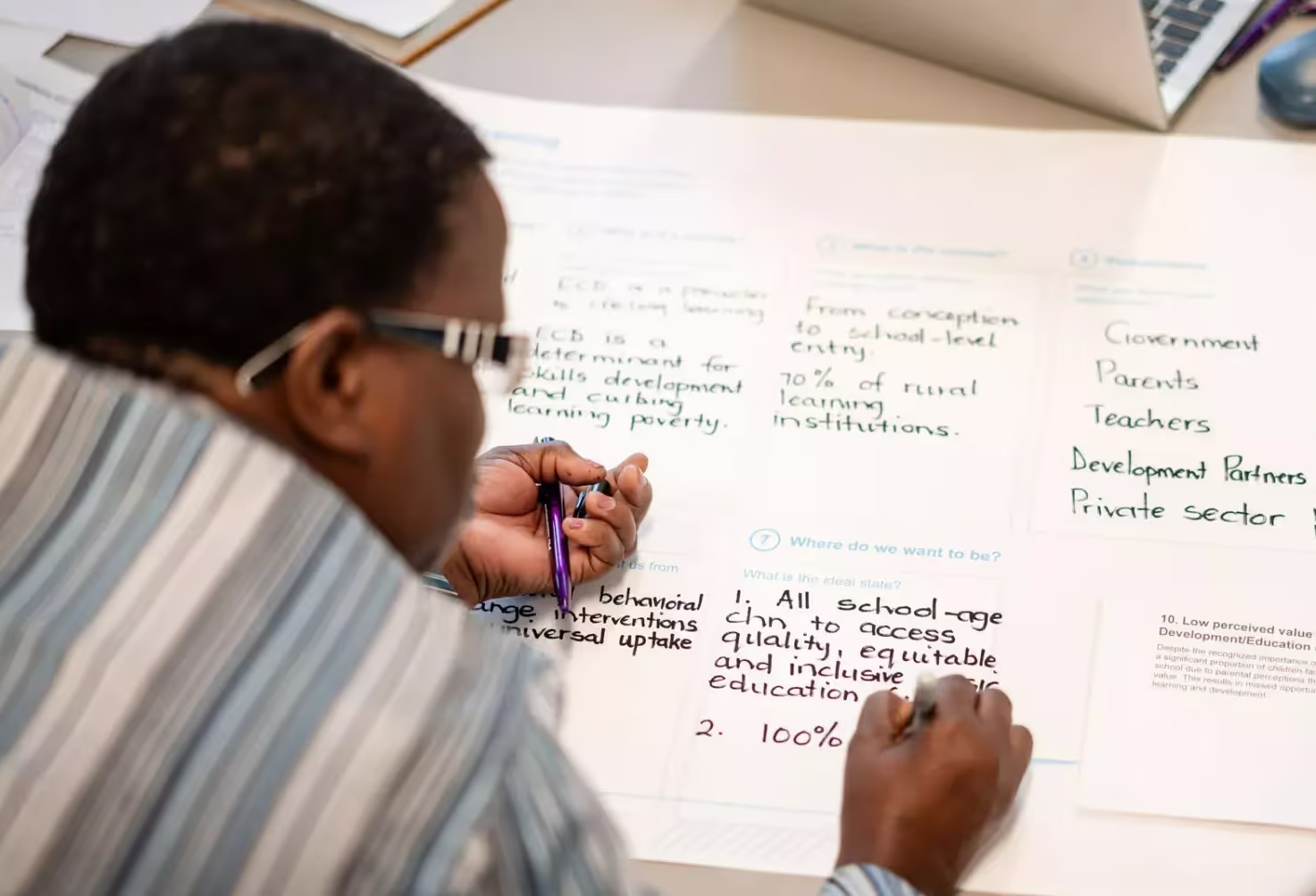Haze Gazer

haze Gazer is a real-time visual analytics tool for enhanced disaster management. The forest and peatland fires, which occur on an annual basis in Indonesia, affect the entire Southeast Asian region resulting in extensive environmental destruction and threatening livelihoods. Indonesian disaster management authorities are looking for more timely and effective means of tracking and managing the impact of fire and haze events. Pulse Lab Jakarta, in collaboration with the Government of Indonesia, developed ‘Haze Gazer,’ a crisis analysis tool that provides real-time situational information from various data sources to enhance disaster management efforts. The prototype uses advanced data analysis of sources including: satellite imagery, information on population density and distribution from government databases, citizen-generated data and real-time data from social media. The capability afforded by the tool can enhance disaster risk management efforts to protect vulnerable populations as well as the environment.


.avif)

